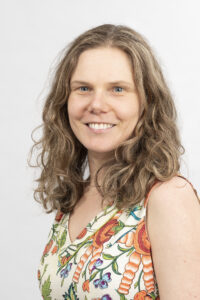Recently, the BMJ Sexual and Reproductive Health created a number of ‘trainee editor’ posts, with a trainee working alongside an associate editor in their country for one year. Trainee editors will gain knowledge and experience as a peer reviewer and also of the peer review process, together with skills that will prepare them for joining editorial teams of journals in the future.
In the coming weeks, the BMJ SRH blog will provide a short feature on each new trainee editor. Our second featured trainee editor is Kelly McNamara.
 Dr Kelly McNamara is a clinician researcher. She is concurrently undertaking training in obstetrics and gynaecology with the Royal Australian and New Zealand College of Obstetricians and Gynaecologists (RANZCOG) and a PhD with the University of Sydney. Dr McNamara is a Clinical Associate Lecturer at The University of Sydney and is the Education Fellow in Obstetrics and Gynaecology at John Hunter Hospital, Newcastle, Australia. She holds a Bachelor of Advanced Science and a Bachelor of Medicine and Surgery with Honours from the University of Sydney, as well as a Graduate Certificate in International Health from Curtin University. Her key areas of interest are substance use in pregnancy; maternal health; and contraception and pregnancy intention.
Dr Kelly McNamara is a clinician researcher. She is concurrently undertaking training in obstetrics and gynaecology with the Royal Australian and New Zealand College of Obstetricians and Gynaecologists (RANZCOG) and a PhD with the University of Sydney. Dr McNamara is a Clinical Associate Lecturer at The University of Sydney and is the Education Fellow in Obstetrics and Gynaecology at John Hunter Hospital, Newcastle, Australia. She holds a Bachelor of Advanced Science and a Bachelor of Medicine and Surgery with Honours from the University of Sydney, as well as a Graduate Certificate in International Health from Curtin University. Her key areas of interest are substance use in pregnancy; maternal health; and contraception and pregnancy intention.
Kelly, what are you most looking forward to as a trainee editor?
Kelly: I’ve been fortunate to have been asked to review a small number of articles in the past, however this new role is an opportunity to be mentored through the process of reviewing articles for publication. BMJ and BMJ SRH provide some of the most useful and practical guidelines for reviewers and I am anticipating the trainee role will help me to expand my critical assessment of articles beyond what I have already learnt. Learning how to properly assess the merit of each article and how to provide valuable feedback to authors will be immensely helpful not only to future work with journals but to my own research capabilities.
Kelly, what do you consider to be the biggest challenge facing sexual and reproductive health?
Kelly: In 2021, it is difficult to mention challenges in health and not immediately think of the COVID-19 pandemic. During the pandemic, other health priorities, including sexual and reproductive health (SRH), have suffered in terms of service delivery, and research and innovation. Furthermore, a lot of researchers in SRH are women, and competing domestic duties have negatively impacted research outputs by female researchers during the pandemic. As some parts of the world look towards life beyond lockdowns, the challenge for BMJ SRH is to lead the way to elevate SRH to the forefront of the health and research agenda.
Follow Kelly on Twitter: @DrKMac_ObGyn